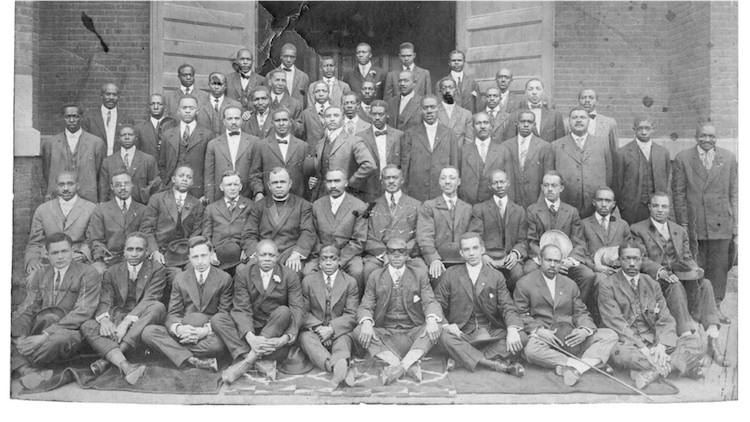I’m learning one of the greatest treasures of life is learning the infinite wisdom that applies directly to my life. All throughout my educational career, I never once heard of Black Wall Street. For those that didn’t hear about Tulsa and Black Wall Street before President Donald Trump canceled one of his rallies, I don’t believe it wouldn’t be more widely known but still, not enough is known or taught about his topic. One would think we–the American people–would hear about observing it during Black History Month, but nope. Nothing.
My Ignorance
As a matter of fact, one of my friends told me about it back in 2012, and I didn’t think much of it. However, I should have known about it in one of my history or business classes. Unfortunately, not one mention of it in the journey of achieving my graduate and undergraduate degrees.
When I first started teaching Business 101 at the local community college, I’ve even failed to mention Black Wall Street because I didn’t see the relevance.
Why is that important to mention?
In this 21st century, we live in a capitalistic economic system. Every country understands this basic business principle. In order to thrive in a capitalist’s economics, the sociology of all the stakeholders have to believe and subscribe to the values within the system. Hence, why I think we haven’t created enough research materials to have the conversation. My podcast is a quick snapshot of a presentation I did in 2019 (down at the bottom).
Black Entrepreneurs
As I was planning a presentation and doing research in the summer of 2019, I realized I’ve failed to include any black entrepreneurs in my own textbook. Once I caught it, I stopped everything I was doing and focused on my mistake. I had to right my wrongs. To be honest, I was embarrassed.
Gratefully, when I released my Introduction to Business textbook published by Great River Learning, I redeemed myself. I’m glad I was able to insert some key names before it was published, but it was a major oversight on my end. I was thinking about how many other college textbooks lack this historical context. I’m sure it’s a lot. When I was finished and sent the additions to my publisher, I said to myself, “I almost added to the problem I hate. My ancestors fought too hard for me to live this life and I can’t forsake them.”
But that also means in the near future, I have a lot more content to add in the next editions.
Black Wall Street’s Founder
On October 31, 2019, I was blessed to present this presentation to my peers at FSOCC (Faculty and Staff of Color Conference). I had 90 minutes to present about Black Wall Street’s Founder O.W. Gurley. In order to find this information, I had 10+ sources to unpack and make the dots. Gurley was one of the key leaders of Oklahoma’s historic Greenwood District, also known as Black Wall Street.
I ran out of time during my research to discover all the individuals who contributed to this epic moment in history before my presentation. Thanks to the books of Black Fortunes, Black Wall Street, and History of the Black Dollar, I was able to learn a little bit more about the context of how Gurley was a true “shaker and mover” in Tulsa, Oklahoma. I’m grateful to Shomari Wills for writing Black Fortunes. He gave me the context in helping me learn more about Gurley and Black Wall Street. As a Pacific Northwest Native, I’ve learned about the Oregon Trail but not about the Exodusters.
The immigrants from the South earned the nickname “Exodusters” as they set out to Oklahoma, where they hoped they could enjoy the Promised Land of Black capitalism.
Why is that?
I learned the following:
- Blacks took jobs in town, working side by side with whites.
- They worked in the homes of whites as domestics, as well as opened businesses, supervising both black and white employees.
- Blacks and whites sometimes lived next door to one another, ate at the same restaurants, and allowed their children to play together, as they worked to build the “Magic City,” as they liked to call it.
Locals labeled the good feelings shared by blacks, whites, Jews, and Indians in early Tulsa “the Tulsa Spirt.”
To be continued… (I’m still learning).
References:
BOSS: The Black Experience in Business
Greenwood District (Oklahoma Historical Society Museum)
Updated: February 2022
Nathan A. Webster, MBA


